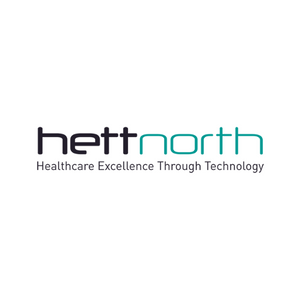The healthcare landscape is undergoing a profound transformation, with automation emerging as a key catalyst for change. From enhancing operational efficiency to improving patient care, automation is reshaping the future of healthcare. In this blog, we delve into eight compelling examples of automation in the UK healthcare sector, illustrating how these advancements are driving innovation and improving outcomes.
Examples of Automation in Healthcare
1. Robotics in Surgery
Robotic-assisted surgery is revolutionising the way surgical procedures are performed. With the assistance of robotic systems, surgeons can achieve greater precision and control during operations, leading to minimally invasive procedures and quicker recovery times for patients. This technology is particularly beneficial in complex surgeries, allowing surgeons to navigate with unparalleled accuracy.
2. Telemedicine and Virtual Health Assistants
The rise of telemedicine has been accelerated by automation, providing patients with remote access to healthcare services. Virtual health assistants powered by artificial intelligence (AI) enable patients to schedule virtual appointments, receive medical advice, and even monitor chronic conditions from the comfort of their homes. This not only improves accessibility to healthcare but also reduces the strain on physical healthcare facilities.
3. Automated Prescription Dispensing Systems
Automation has streamlined the medication management process, with automated prescription dispensing systems taking centre stage. These systems accurately dispense medications in the correct dosage, reducing the risk of errors associated with manual dispensing. Automated dispensing not only enhances patient safety but also optimises the workflow for pharmacists, allowing them to focus on more complex aspects of pharmaceutical care.
4. AI-Powered Diagnostics
Artificial intelligence is transforming diagnostic processes by analysing vast amounts of medical data to identify patterns and trends. AI algorithms can assist in interpreting medical images, such as X-rays and MRIs, providing quicker and more accurate diagnoses. This not only expedites the diagnostic process but also allows healthcare professionals to allocate their time more efficiently.
5. Automated Appointment Scheduling
Efficient appointment scheduling is a critical aspect of healthcare management. Automation has simplified this process, allowing patients to schedule appointments online and receive automated reminders. This not only reduces the administrative burden on healthcare staff but also minimises the likelihood of missed appointments, ensuring a more efficient use of healthcare resources.
6. Wearable Health Technology
The integration of wearable devices and sensors represents a significant leap in healthcare automation. These devices, ranging from fitness trackers to continuous glucose monitors, collect real-time health data. This information is then transmitted to healthcare providers, enabling proactive monitoring of patients' health. Wearable health technology empowers individuals to take control of their well-being while providing healthcare professionals with valuable insights for personalised care.
7. Automated Billing and Claims Processing
Automation has streamlined the often complex and time-consuming task of billing and claims processing in healthcare. Automated systems accurately generate invoices, submit claims to insurance providers, and track payments. This not only reduces the risk of billing errors but also ensures timely reimbursement for healthcare services. Automated billing systems contribute to financial stability for healthcare organisations, allowing them to focus on delivering quality care.
8. Robotic Process Automation in Administration
Administrative tasks, such as data entry, appointment scheduling, and paperwork, can be time-consuming and prone to errors. Robotic Process Automation (RPA) is addressing these challenges by automating repetitive tasks, freeing up valuable time for healthcare professionals. RPA enhances efficiency in administrative workflows, allowing staff to concentrate on more complex and patient-centric responsibilities.
Looking to the Future of Automation
The future of healthcare in the UK is undeniably tied to the integration of automation. The examples highlighted above underscore the transformative impact of automation on various facets of healthcare delivery. From robotic-assisted surgeries to AI-powered diagnostics and wearable health technology, these advancements are not just technological innovations but crucial steps towards a more efficient, accessible, and patient-centric healthcare system.
As we navigate the evolving landscape of healthcare, embracing automation is not merely a choice; it is a necessity. Healthcare providers that invest in and leverage automation technologies are better positioned to deliver high-quality care, optimise resource allocation, and meet the evolving needs of patients in the digital age. The future of healthcare is automated, and the UK is at the forefront of this exciting revolution.
Discover More Examples of Automation in Healthcare
Join us at HETT North on 28th February in Manchester to find out more about the benefits of automation in healthcare.
Register for your FREE pass now to enjoy:
- 40+ hours of CPD-accredited content across 6 content streams
- 100+ innovative suppliers
- 1-2-1 meeting opportunities with over 1,400 like-minded peers
- 100+ expert speakers including Jenny Chong, Masood Ahmed & Natasha Phillips
%20(1).png?width=500&height=58&name=HETT%20insights%20logo%20RGB-04%20(1)%20(1).png)


